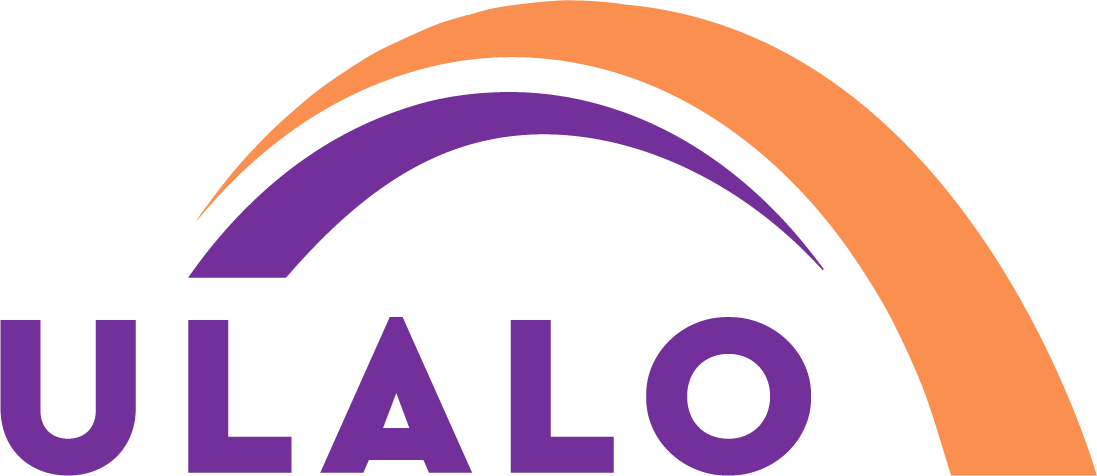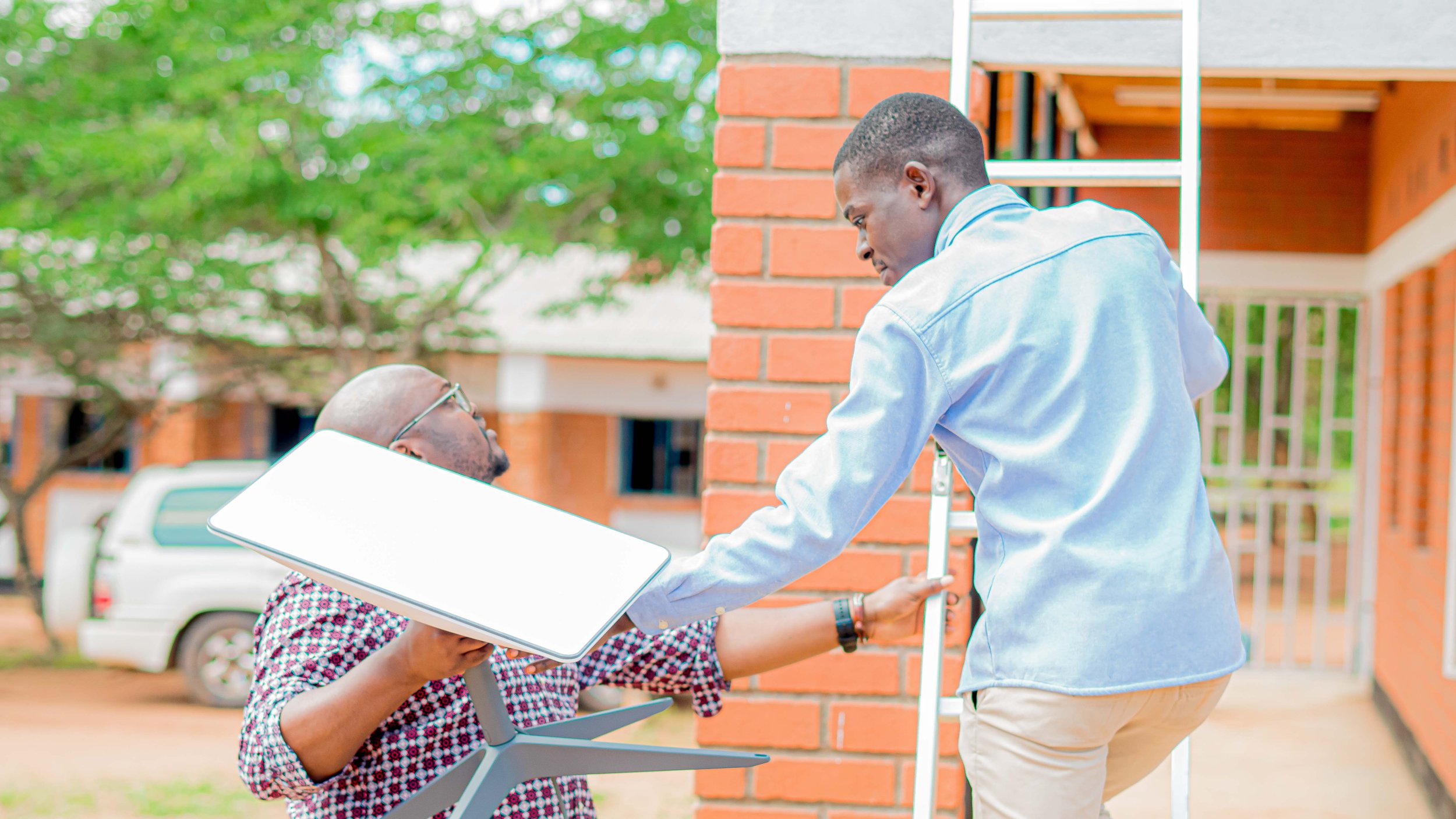Intersecting Development with Human Dignity: How Ulalo is Changing the Face of Developmental Projects
Reflection by Oluseun Tanimomo, Communications, Monitoring, and Evaluation Advisor
Formerly known as the Center for Youth Development, Ulalo is one of the organizations shaping the developmental landscape of Malawi and the continent. Ulalo's approach to development is, in many ways, inclusive and progressive and should be a beacon of hope to many.
My interest lies particularly in the way the team at Ulalo, brimming with potential and resilience and also home to passionate individuals, is striving to uplift communities and foster sustainable development while also upholding the dignity of the participants in their projects. Indeed, this Malawian non-governmental organization (NGO) is catalyzing positive change and improving the lives of young people in Mzuzu, Mzimba, Enukweni, and the Northern Region and beyond.
First day at Ulalo, Olu (fourth from right)pose for a group photo
In these first weeks, as I reflect on its achievements, I will delve into some of the work of Ulalo and its intersection of human development and human dignity, which lies at the core of its endeavors. I will start with my visit to the locations of two of their projects.
My first visit was to Enukweni Community Day Secondary School. At this day school in Enukweni, Ulalo, in partnership with Groundbreaker and funding from the German organization, St. George’s International Club, constructed a state-of-the-art computer lab which was fully installed with satellite internet service. I can only imagine how much of a game-changer this would be, particularly with the enthusiasm of the school staff and the students. The implication of this project is that the students’ passionate for better and competitive futures, will be able to conveniently access educational materials from around the world.
Student at Enukweni pose for a picture inside the computer lab
More defining for me is the school project at Malokotela. While it was difficult to reckon with the reality that students of the school numbering over 70 would have had to travel about 22 kilometers to get an education, it was uplifting to know that Ulalo and its collaborators stepped in innovative ways to address the issue. This, for me, has been the highlight of my time here in the warm heart of Africa.
I am interested in education and I believe we should eliminate as much as possible the huge discrepancy in the desire to get education and the opportunity to get an education, both through spatial and economic access. The outcomes this will have for the future of the continent cannot be overemphasized. To digress, a chapter of my PhD focused on individualization, the sense in which institutions institute individualism. What this means is that the apparatus of the state, social factors, and individual rights are gradually moving humans away from the "assurances" of traditional protocols; this also includes an emerging affinity with individual power over social power.
The individual has become important in and of themselves in the 21st Century; Africa is not an exception. There are tons of articles that celebrate the communitarian ethics of many African countries over the individualizing tendencies of the West. Wherever one pitches their camps, the globalizing aspects of economics, the media, and ideologies are reshaping how we think and, in fact, our beings, pushing us to search within ourselves on how to live in the 21st century. Thus, to live effectively in the 21st Century, education parity plays a vital role. Education is crucial in training the mind in line with a career, hence economic independence. Education stands as a cornerstone of development, empowering individuals to break the cycle of poverty and reach their full potential.
Construction of hostels in Progress at Malokotela CDSS
Back to Ulalo, the Mzuzu-based NGO has made significant strides in advancing education accessibility and quality across the Northern Region. Through building blocks of classes, installation of internet infrastructure, provision of learning materials, and teacher training programs, they have opened doors to countless children who otherwise might have been denied this fundamental right. There is another benefit: the future of these children is better secured, and there is a brighter hope for democracy and civil society.
This means that by investing in education, Ulalo not only imparts knowledge but also instills a sense of dignity and self-worth in individuals. Education equips them with the skills needed to navigate life's challenges, pursue their aspirations, and contribute meaningfully to society. Moreover, it fosters critical thinking, empowering individuals to question injustice and advocate for their rights, thus nurturing a culture of dignity and empowerment within communities.
What I foresee is that these projects will promote economic empowerment. Consequently, the good work that Ulalo is doing will not only improve material conditions but also uplift the spirit and dignity of individuals for generations to come. Education will affirm their capabilities and potential, enabling them to take control of their lives and pursue their aspirations with confidence. Hence, the NGO lays the foundation for long-term sustainable development, ensuring that communities in the Northern Region thrive and flourish for generations to come. What is more, whether it is the block of classrooms or the internet services, Ulalo serves for the best qualities coeval with world standards. I imagine what this does to the psyche of the students when they know that they have access to the same kind of internet infrastructure as their peers in countries like Finland, the US, Germany, Denmark, South Africa, Canada and other countries.
In conclusion, I would say, in its journey towards positive change, Ulalo's projects exemplify in good ways the profound intersection between human development and human dignity on which scholars like Tom G. Palmer, Matt Warner, Deirdre N. McCloskey, and many others have theorized. Through its tireless efforts in education and other initiatives like Rent a Bike, BeFit, it not only improves material conditions but also uplifts the spirit and dignity of individuals.
A vital lesson for me has been that as I celebrate the achievements of this noble Malawian NGO, I will continue to reaffirm my commitment to advancing human development and upholding human dignity. I am optimistic about a world where every individual has the opportunity to thrive, where no one is left behind, and where dignity reigns supreme.








